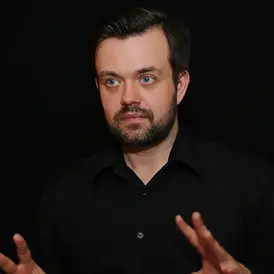Burnout and productivity
CORPORATE SEMINAR
Nowadays, we encounter professional burnout more and more often. And at the same time, we demand high productivity from ourselves and others.
Moreover, the mechanisms and methods of increasing productivity, which are tried to be used in organizations, even encourage people to burn out (for example, pointless meetings, pointless glorification of the organization, internal communication errors, etc.). Also, it is often believed in organizations that just raising the salary will automatically increase productivity. Such a view is erroneous. First of all, it is necessary to develop the environment that increases productivity, and further, based on that, the salary can be increased.
During the seminar, we will talk about how to protect yourself and employees from burnout, how to help yourself and others if burnout has already started, and how to develop the environment that increases productivity.
Burnout and productivity will be examined in relation to brain function, since burnout is not so much a psychological process as a result of brain function.
The seminar is intended for managers, HR professionals, project managers, educators, Scrum Masters, Product Owners, marketing project managers, digital project managers, and other interested individuals.
TOPICS OF THE SEMINAR
1.1. How not to burn out?
1.2. How to “catch” the moment when we start to burn out?
1.3. Techniques to determine in which stage of burnout we are and why we burn out;
1.4. How to do everything possible to at least stop these processes?
1.5. Mechanisms of burnout and their relation to dopamine (well-being and happiness hormone) systems.
2.1. How does it work?
2.2. When does procrastination appear?
2.3. How to get rid of it:
2.3.1. How to help yourself?
2.3.2. How to help employees?
3.1. Burnout stage;
3.2. Procrastination stage.
- self-motivation factors and goals;
- Internal and external motivators;
- why do external motivators work temporarily or do not achieve the desired result?
- what determines self-motivation?
- how to promote self-motivation?
5.1. What is productivity? Productivity studies;
5.2. Methods for increasing productivity (the most effective according to statistics):
5.2.1. Individual methods;
5.2.2. Methods used in groups;
5.2.3. Methods applied throughout the team.
.
.
Moderator:

Andrejs Kozlovs
Obtained the highest academic degree in behaviourism (University of Vienna), master’s degree in public relations. Manager and public relations specialist experience – more than 13 years, gained while working in such facilities of national importance as Liepaja city concert hall “Lielais Dzintars”, EUROPASS CV, Study in Latvia, etc.
Since 2005, he has been conducting seminars and trainings for various audiences both in Latvia and elsewhere in the world on improving leadership skills, stress and conflict management, procrastination, optimizing brain activity, building public relations, communication, telemarketing, public speaking, and other topics.

